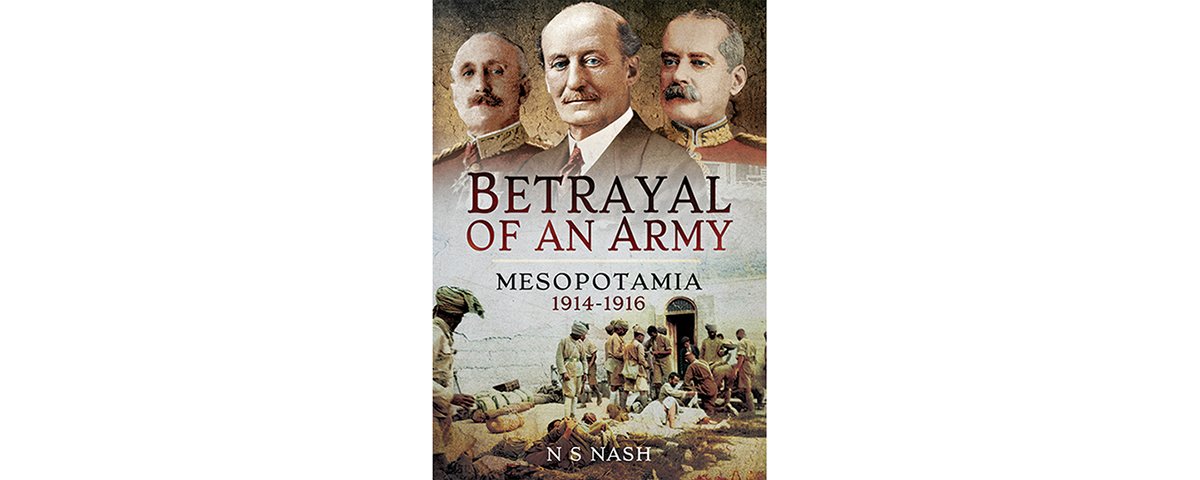Betrayal of an Army: Mesopotamia, 1914–1916, by N.S. Nash, Pen & Sword Military, Barnsley, U.K., 2016, $44.95
“How softly but how swiftly they have sidled back to power by the favour and contrivance of their kind?” pondered Rudyard Kipling in his poem Mesopotamia. Written in July 1917 and published simultaneously in The New York Times and London’s Morning Post, Kipling’s verses were a damning indictment of those who had dragged Great Britain into the Mesopotamian campaign, a military misadventure described at the time as “nobody’s child.”
At stake was oil, of which Great Britain had precious little to fuel its battle fleet, but which was available in vast quantities at the head of the Persian Gulf. With German influence in Turkey growing, British fears about essential oil supplies intensified, and on Nov. 5, 1914, Britain declared war on the Ottoman empire. The subsequent campaign in Mesopotamia—as brilliantly chronicled by Nash—ultimately resulted in “mission creep” of monumental proportions.
Those who served in Iraq and Kuwait during the Gulf Wars will readily vouchsafe the old Arab proverb, “When God made Hell he did not think it bad enough, so he created Mesopotamia, then added flies.” Despite hostile conditions, and buoyed by the initial success of capturing key territory and the oil fields from the Turks, the British advanced upriver along the Tigris River.
In April 1915 Maj. Gen. Charles Townshend—“Chitral Charlie,” as he was known, following his 1895 exploits in India’s North-West Frontier Province—took command and by November had reached Ctesiphon, just 20 miles from Baghdad. There, over three days, the opposing armies fought to a standstill, neither appreciating the other’s losses. For the British a perilous fighting retreat downriver was the only option.
At Kut, described as the most unsanitary place in Mesopotamia, the Turks quickly surrounded the town, trapping 14,586 troops—1,500 of whom were sick or wounded—some 6,200 civilians and 1,500 prisoners. The subsequent siege, which lasted until the garrison’s surrender the following April, proved the worst British military disaster since Yorktown, which had lost them the American colonies. As Nash concludes, Mesopotamia is “an immovable dark blot on Britain’s military history. The hope is that the men who died will not be forgotten, and the men who indirectly caused their deaths will not be forgiven.”
—David Saunders





